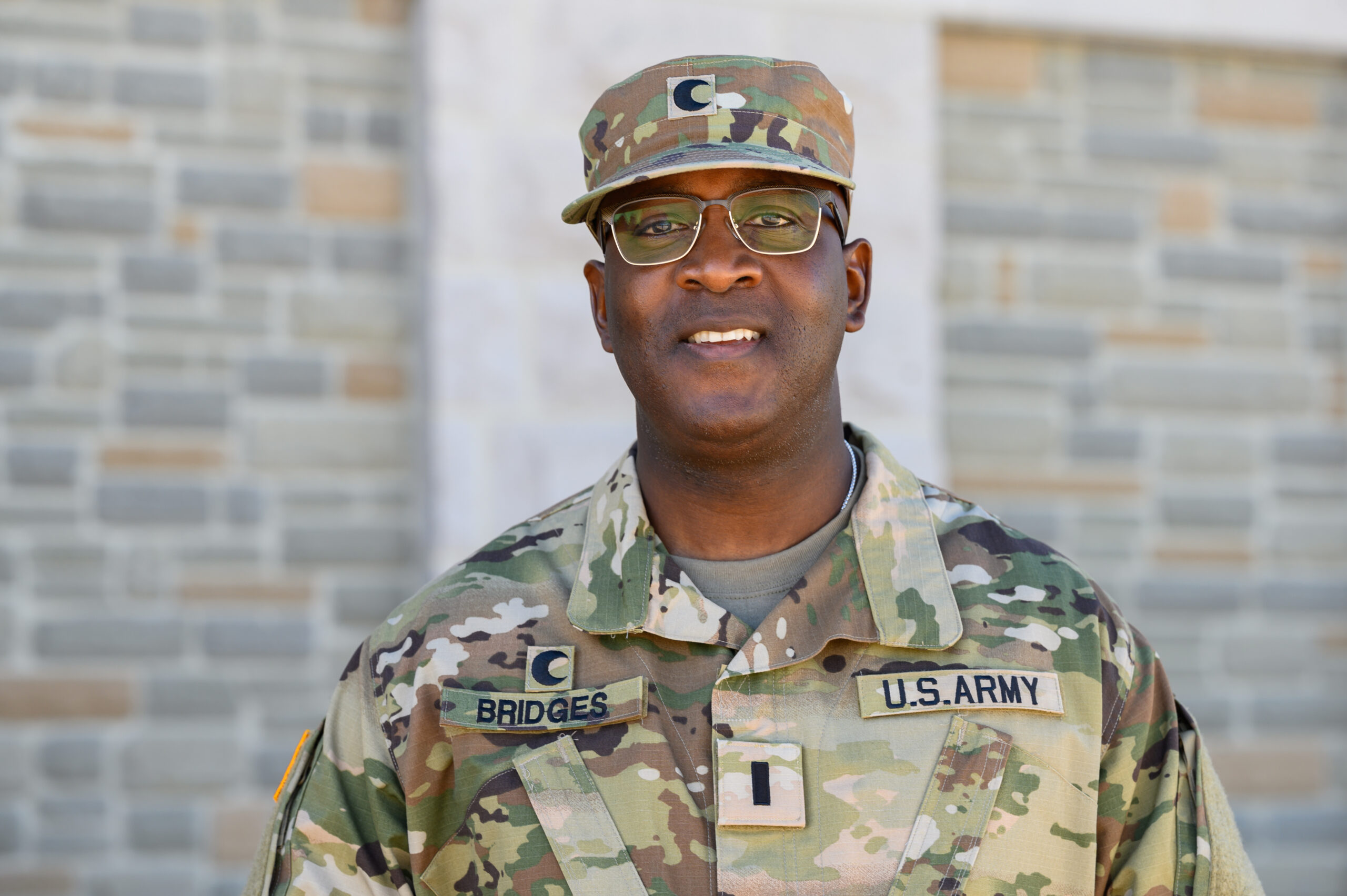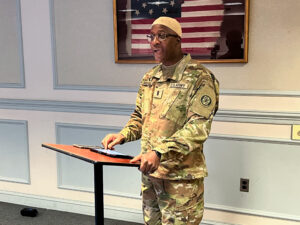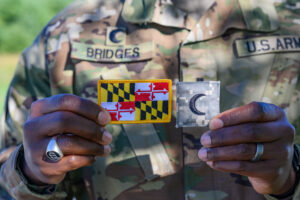
Caring for people who have experienced trauma means everything to U.S. Army Chaplain (1st Lieutenant) Edrees Bridges, the Maryland National Guard’s first Muslim chaplain.
Bridges, who also serves as a nearly 25-year veteran of the U.S. Capitol Police says his first experience with chaplaincy changed the course of his life. While responding to a civilian emergency incident while on duty with the Capitol Police, he was struck with the level of care the police chaplain gave to the people experiencing a traumatic event. All the chaplain did was lead a moment of silence, and Bridges felt that silence speak volumes to him.
“At that moment, it did something to me where I said, ‘This is what I want to do.’ You know, we call it silence, but we are always hearing things. We’re always communicating. And I think it was that voice within, that voice of guidance that was driving me to where I need to be.”
 The role of a chaplain, Bridges makes clear, is not like typical faith leaders who teach about their faith traditions and emphasize sacraments and sacred text. In studying to become a chaplain, he was surprised to find out that this role was not about religion, but about spirituality. He says he told his program supervisors that the tools they gave him to supposedly help others were actually to help himself.
The role of a chaplain, Bridges makes clear, is not like typical faith leaders who teach about their faith traditions and emphasize sacraments and sacred text. In studying to become a chaplain, he was surprised to find out that this role was not about religion, but about spirituality. He says he told his program supervisors that the tools they gave him to supposedly help others were actually to help himself.
“Chaplaincy is about looking within, learning how to deal with your trauma, [and figuring out], how can you take those pieces and still make progress in life? Once you learn how to do that,” he says, “then [you] have the ability to partner with others as they are working through those things to discover, or rediscover, their purpose in life.”
For him, it’s about the journey and meeting people where they are. This is why Bridges prefers to be referred to not as the Maryland National Guard’s first Muslim chaplain, but as the first chaplain of the Muslim faith tradition: he does not want people to think he’s only there for other Muslims.
Bridges has noticed that when some claim to be Christian chaplains in pluralistic environments, then others assume those chaplains are only there in service of Christians.
“I’m there for every human being—every human being—to journey with them,” he said. Regardless of their faith, Bridges is determined to have a ‘people-first’ mentality.
He says that translated to his volunteer work at the Prince George’s County Jail as well, even though as a volunteer imam he lectured and led prayers for Muslims there. Bridges says that he journeyed with those incarcerated as they rediscovered their purpose in life.
 As a participant in the ICJS 2021 Justice Leaders Fellowship, Bridges says his cohort dove deeper into the theological concepts of economic justice in their various faith traditions. In the Muslim tradition, he says the Muslim sacred text talks about caring for oneself and one’s own household. He believes that before we can even touch finances, we first need to learn how to be “good custodians of the Earth that our Creator has given to us.”
As a participant in the ICJS 2021 Justice Leaders Fellowship, Bridges says his cohort dove deeper into the theological concepts of economic justice in their various faith traditions. In the Muslim tradition, he says the Muslim sacred text talks about caring for oneself and one’s own household. He believes that before we can even touch finances, we first need to learn how to be “good custodians of the Earth that our Creator has given to us.”
Bridges concedes that his purpose in life may change, but he feels Allah has guided him to where he needs to be now.
“My prayer was always, ‘God, use me to bring others closer to you,’ and I didn’t know what that looked like—so I look at my life right now as the answer. This is what I prayed for,” he says. “Every day I get up, I thank Allah for giving me another opportunity to do something that could possibly save someone’s life.”